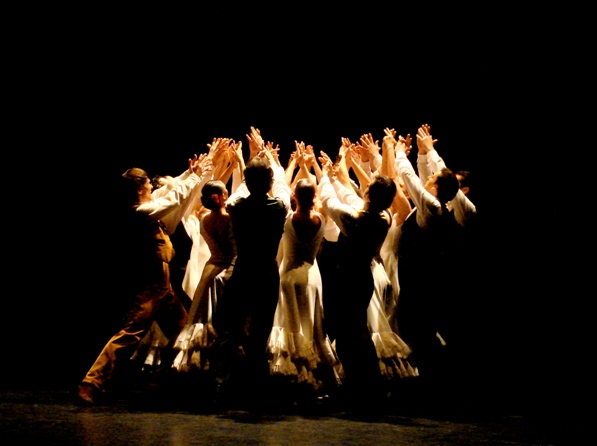
The Antonio Gades Dance Company will return to Israel this month with two programs: “Carmen” and “Blood Wedding” & “Flamenco Suite.” Performances will take place in Tel Aviv, Jerusalem and Haifa from February 24, 2011 to March 1, 2011.
Antonio Gades (1936 – 2004) brought the essence of flamenco dance to the light, removing the excess ornamentation to reveal its roots in Spanish folklore, the passion and beauty of the dance itself. Born at the start of the Spanish Civil War, Gades remained an activist throughout his life and was presented with the Order of José Martí by Fidel Castro in Cuba, just a few weeks before his death. Gades left a living legacy in the Antonio Gades Foundation which faithfully preserves and performs his choreography. Touring since 2006, their repertoire includes his major works: the Flamenco Suite (1968), Blood Wedding (1974), Carmen (1983), Fire (Love the Magician) (1989) and Fuenteovejuna (1994). This tour marks the 75th anniversary of Gades’ birth.
A legendary figure – dancer, choreographer, activist – Gades had a strong artistic affinity with filmmaker Carlos Saura. Gades created the choreography and starred in Saura’s Flamenco trilogy: Blood Wedding (1981), Carmen (1983), and El Amor Brujo (1986).
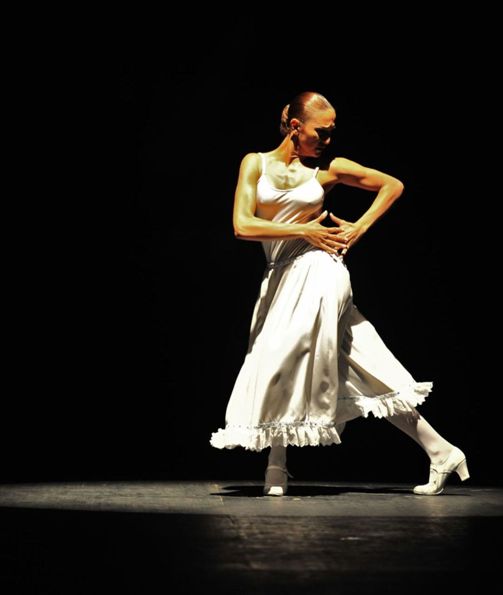
The first program includes Blood Wedding, a dance in six scenes based on the play by Federico Garcia Lorca. The creation of Blood Wedding was a landmark event in Spanish dance, connecting to the traditions and folklore of Andalusia, as reflected in Lorca’s work. Gades commented on the struggle between Leonardo (whom Gades portrayed in Saura’s film) and the Groom, that it was one of the most difficult scenes he has ever done, saying, “I want to express that pain, to dance like a man facing his death, and meeting his death with equanimity, without hysterics, and without creating a commotion.” Six years after the dance was created and performed worldwide, Gades created the film version with Carlos Saura, marking the beginning of their artistically exciting collaboration.
Flamenco Suite – The scenes of Flamenco Suite were created over a period of five years, beginning in 1963. In this work, Gades presents traditional flamenco from his personal perspective. The solos, duets and group dances included in this suite, were considered avant-garde at the time, and achieved the standing of classics in flamenco dance, presenting an opportunity to view a wide range of styles that are not often performed today.
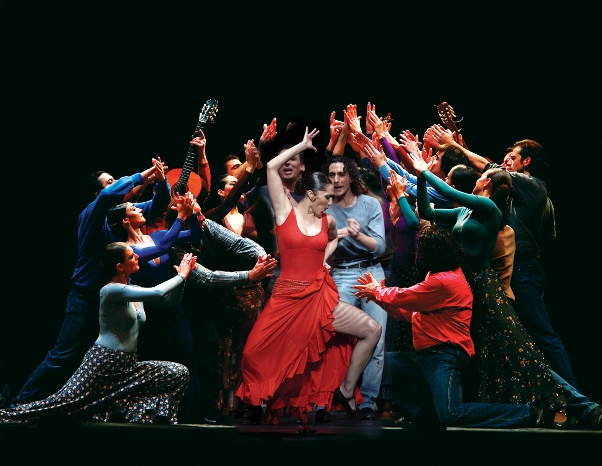
Carmen, an evening length work, comprises the second program. The talented young dancer Vanessa Venaso, who joined the company in 2008, will play the role of Carmen. Stella Arouzo, the company’s artistic director, portrayed Carmen during their previous tour in Israel in 2009.
The dance is based on the award-winning 1983 film collaboration of Gades and Spanish director Carlos Saura. The film received an Oscar nomination in 1983 and British Academy of Film and Television Arts (BAFTA) award for Best Foreign Lagnuage Film in 1985. The story is based on Prosper Merimée’s novella depicting a beautiful Spanish gypsy who is the temptation and downfall of Officer Don José. The relationship between music and dance in the Spanish tradition is reflected in this interpretation of Carmen, which weaves the music of Bizet’s opera with live performance of guitars and singers with traditional Spanish tunes – cante flamenco – this adaptation depicts a dance company preparing for a production of Carmen. The artistic director of the company, who also plays the role of Don José, falls under the spell of the young, ambitious dancer who plays Carmen. The minimalism of the set highlights the expressive quality of the dance. His obituary in the Times quotes Gades as saying, “I’m not a folklorist but I studied folklore as a poet studies grammar. A poet searches for the word and if it doesn’t exist he creates it. My idea was to do something more with that folklore, not steal it from the village and prostitute it, but to gather up its essence and do something else, tell a story through movement.”
Performance dates:
February 24 & 28, 2011 at 20:30, February 25, 2011 at 13:00 Mann Auditorium (Hechal Hatarbut), Tel Aviv. Information: 03-524-7373, 03-527-0545
February 25, 2011 at 21:30 and 26, 2011 at 20:30 Haifa Congress Center. Information: 04-8518000/1
March 1, 2011, Jerusalem International Convention Center (Binyanei HaUma), Jerusalem at 20:30. Information: 02-6230032
Tickets range from 159 – 349 NIS.
Tel Aviv: Hadran order online, or call *2274
Haifa: “Kupot Haifa” 04-8662244
Jerusalem: “Bimot” order online or call *6226, 02-6237000


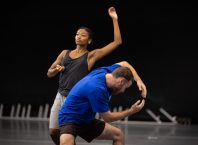
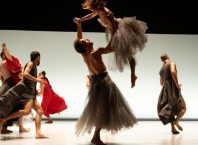


Comments are closed.